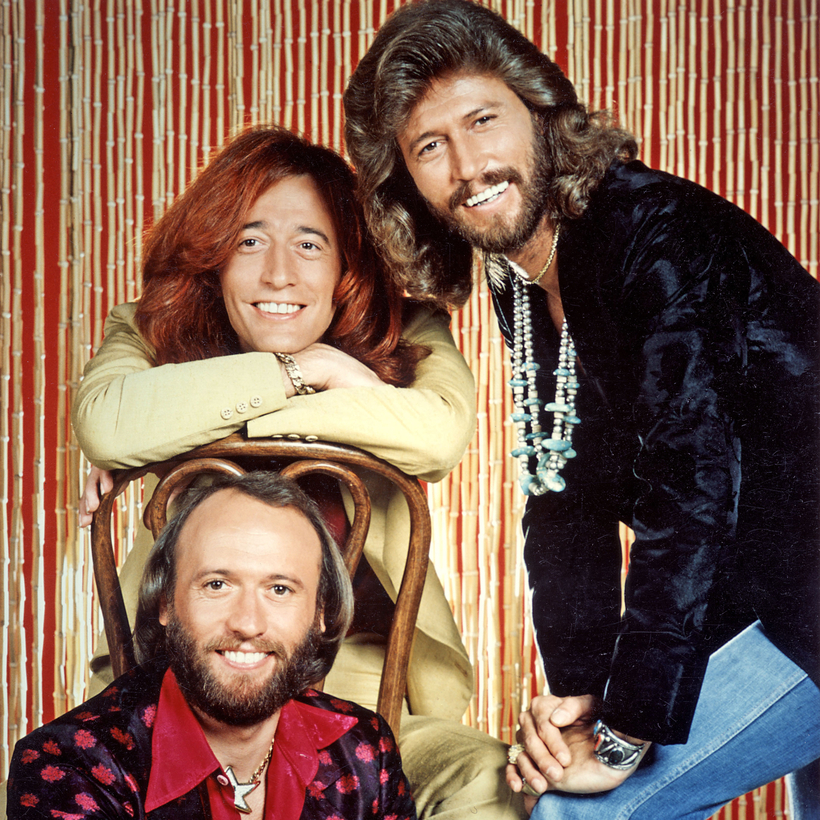It was while hanging out in a stripper’s dressing room that an 11-year-old Maurice Gibb started questioning his life. “Will I be a normal child?” he wondered as he waited to go onstage with his twin, Robin, and elder brother, Barry, for the nightly club set their band fitted in after school. The answer came to him quickly: “No!”
Normality doesn’t have much of a part to play in the story of the Bee Gees, the band formed in Brisbane in 1959 by three recovering juvenile delinquents fond of the Everly Brothers and low-level arson. As Bob Stanley’s astute, affectionate biography Bee Gees: Children of the World stresses, there was nothing normal about an adolescence spent singing alongside dancing dogs and jugglers in rough Queensland clubs. There was nothing normal about their turbulent international career, either, with nine US No 1 singles, outstripped only by the Beatles and the Supremes.

Their prodigious songwriting gifts, meanwhile, were positively freakish, not only generating a huge volume of household-name songs for themselves, but also for such pop Olympians as Diana Ross, Barbra Streisand and Dionne Warwick.
Normality doesn’t have much of a part to play in the story of the Bee Gees, the band formed in Brisbane in 1959 by three recovering juvenile delinquents fond of the Everly Brothers and low-level arson.
With their 220 million record sales, it seems ridiculous to cast the Bee Gees as anything but victors, but Stanley, vigilant against received wisdom, makes a different case. With the educational zeal of his previous musical histories, Yeah! Yeah! Yeah! and Let’s Do It, he argues that the Gibb brothers have never received sufficient respect for their work or influence, instead provoking an odd squeamishness even in broad-minded pop fans.
They were mocked for their teeth, androgynous voices and leonine disco pomp. Six consecutive US No 1s, and they never received the call to play Live Aid. This book, Stanley says, is an attempt to “give them their rightful place at the very top of pop’s table”.
Yet being outsiders, Stanley explains, is a vital part of Bee Gee DNA. They were born on the Isle of Man, the sons of a redundant band leader and a former singer. A move to Manchester resulted in poverty and police attention over the boys’ junior law-breaking, so in 1958 the family took up the offer of a new life in Australia for £10. In Brisbane Barry, Maurice and Robin started performing at the speedway track; by 1960 they had their own local television show. Even at 12 years old Barry claimed to have written 180 songs.

This upbringing, the book suggests, resulted in a curious fraternal insularity Robin would later compare to the Brontës, something almost otherworldly. When they returned to England in 1967 to launch their international career, signing with the alpha mogul Robert Stigwood, who was at the time part of the Beatles’ management company NEMS, the receptionist judged them “out of date” and sent them to buy hipper clothes.
Stanley boldly claims that they influenced everything from early prog to Talking Heads, but even he can be gently irreverent, recognizing that the band could be “violators of the English language” in their idiosyncratic lyrics. See, for example, the single “Fanny (Be Tender with My Love).”
Being outsiders is a vital part of Bee Gee DNA.
Eccentricity, though, is essential to the pop star project, and while the Gibbs might have seemed straighter than Marc Bolan or David Bowie (who wanted to emulate the 1968 gothic folk single “New York Mining Disaster 1941” for his hit “Space Oddity”), they emerge from Stanley’s analysis as distinctive, unusual characters.
A history buff fond of uppers and downers, Robin was profoundly affected by surviving the Hither Green train disaster of November 1967, in which 53 people died. Maurice, briefly married to Lulu, was a drinking companion of his next-door neighbor Ringo Starr (they planned on digging connecting tunnels); Barry remains inscrutable, defensive, alert to slights, the brother who ended a notorious 1997 television interview with Clive Anderson by flouncing off.
Their dynamic was often fractious and their career was similarly unstable. The book vividly shows how delicate the ecosystems of a band’s success can be. After 11 albums, a 1974 dip in profile forced them to take a residency at Batley Variety Club, an engagement that left Robin feeling sick at this return to their beery roots. Three years later, though, the trough became a peak as their soundtrack for Saturday Night Fever for once put them entirely in strutting, white-satin-suited step with the times. Even then, though, they were anticipating the backlash, preparing to sublimate themselves into other people’s records — Streisand’s “Guilty,” Warwick’s wonderful “Heartbreaker” — in the 1980s.

Stanley is alert to the comedy of pop-star existence — he describes Robin’s gloomy attempt at a jingle for Coca-Cola as being more suited to meths-drinking — but he also tells a deeply melancholy tale. Behind the Bee Gees’ success lies a shadow story — that of their younger brother, Andy, whose huge hit singles, written for him by his brothers, only intensified his crushing insecurity. He spent his days playing with guns and a lion cub on a houseboat that once belonged to a drug dealer; he died of a heart infection in 1988 aged 30, shortly after his brothers’ decisive comeback “You Win Again.”
Maurice died in 2003; Robin in 2012. Barry’s superb solo performance at Glastonbury in 2017 was not an uncomplicated triumph. This book, however, stands as a loving vindication of the band, moving beyond the hothouse chest hair and florid falsettos to illuminate an elusive, undersold story. You should be dancing, but as the Bee Gees seemed to know, nothing’s ever that easy.

Victoria Segal is a book critic at The Sunday Times

